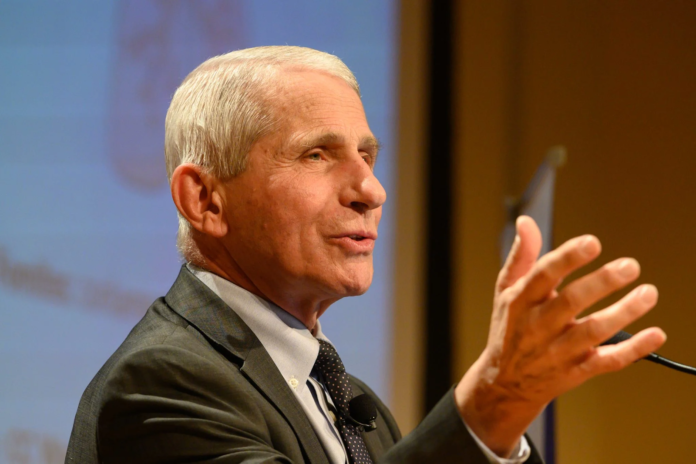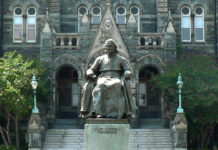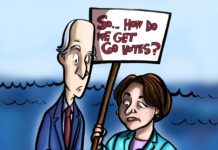![]()
Warm lights shone on Dr. Anthony Fauci on Mar. 27th as he walked out to a full Lohrfink Auditorium, and the crowd welcomed him to Georgetown with equally warm applause. The Maloy Distinguished Lecture in Global Health, organized by the Science, Technology and International Affairs (STIA) program, attracted students from all of Georgetown’s schools eager to hear from the man who garnered the nation’s undivided attention for nearly two years.
Like most of the United States, I had almost exclusively listened to Dr. Fauci through short interviews on the news or social media; these quick clips offered little to fully assure the American public that the U.S. government had control over what was a public health crisis of monstrous proportions. Hearing him speak in person, however, was a refreshing departure from TV interviews. Fauci comprehensively outlined America’s response to the COVID-19 pandemic and thoughtful lessons we can take from it. Among these were to “expect the unexpected,” act early and stay true to facts. In the roughly 40-minute lecture, Dr. Fauci elaborated on various key points regarding the COVID-19 pandemic, which he was unable to on national television. For example, he dwelled on the unprecedented nature of the characteristics of SARS-CoV2 (the virus that causes COVID-19), such as its extreme ability to produce new variants and how this risked inconsistency in his messaging.
In fact, issues about Fauci’s messaging became somewhat of a theme in the event. He was asked by a student about how he and those in similar positions could stay trusted by the public when so much information about the virus was unavailable at the time. In response, he made his case for alleged “flip-flopping” on pandemic guidance, attributing it to the nature of the business. The virus evolved rapidly and so too did the relevant science–this is certainly true in many cases beyond COVID-19.
Some would argue that Fauci’s repeated contradictions and reversals from masks to the transmissibility of the virus made it difficult to keep trusting him to guide the country through the crisis. In response, the lecture offered some insight into how unforeseen many of the government’s consequences were. For example, his presentation compared and contrasted SARS-Cov-2 with influenza to illustrate the needs that our public health apparatus and understanding was and was not capable of addressing three years ago.
That being said, Fauci could only explain away so much of his received criticism. There remained several elephants in the room regarding his perhaps heavy-handed, perhaps opportunistic response to the pandemic. He briefly suggested COVID-19 measures may have lasted too long, a major point of contention which grew considerably after Florida loosened restrictions so early in the pandemic–to Fauci’s disapproval–then reported better outcomes than many other states.
No questions were asked about Fauci’s purported conflict of interest working as the Director of the National Institute of Allergy and Infectious Diseases (NIAID) in conjunction with large pharmaceutical companies. The same can be said for controversies around involvement in gain-of-function research, or his outright dismissal then willingness to consider a lab as a possible source of the outbreak in 2019. Nonetheless, when viewing a thorough and thoughtful presentation by the academic and seasoned communicator, these criticisms were admittedly easy to overlook.
During the event, he demonstrated his scientific experience with witty humor that evidently resonated with the Hoya crowd, soliciting laughs and nods of understanding. As a man ranked among the top 50 most cited scientific researchers of all time, a recipient of countless honors and distinctions, and a leader through numerous public health emergencies over six American presidencies, Dr. Fauci is undoubtedly an incredible figure in the history of public health and immunology.
However, with Fauci’s top lessons being to “expect the unexpected” and follow facts, it remains to be seen whether trust in public health institutions remains strong enough that Americans will heed guidance when we inevitably face the next major crisis.











